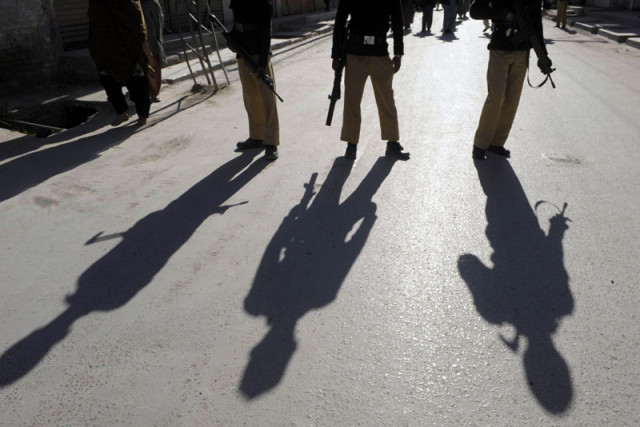Citing incompetence: Court charges DSP for shoddy investigation
Claims lack of evidence led to release of two and acquittal of three others.

“The DSP not only failed to follow the law but also demonstrated negligence or incompetency,” the order read, further stating that the investigation conducted was “defective, mala fide and dishonest”. PHOTO: AFP/FILE
Cadet college student Hashmatullah was allegedly kidnapped from Kohat Bus Stand on April 23, 2013. SHO Abdur Rehman raided the hujra of the accused, Behram, on May 16, 2013 and arrested him along with Rehmat, Imran, Hanif and Abdul Hanan.
Two of the accused, Abdul Hanan and Imran, were set free the same day while the other three were acquitted on December 12, 2013 after evidence in the case failed to prove the kidnapping. No data was collected from the two mobile phones that were recovered from the possession of the accused.
On Monday, the court declared the investigation was faulty as no record of proceedings was filed under Section 54 of CrPC and Section 13 of Arms Ordinance, 1965 against the accused. It was found that the two proceedings were filed against only three accused while Abdul Hanan and Imran, who were also arrested, were set free.
“The DSP not only failed to follow the law but also demonstrated negligence or incompetency,” the order read, further stating that the investigation conducted was “defective, mala fide and dishonest”.
The DSP was convicted under Section 27 of the Anti-Terrorism Act, 1997 but leniency was observed keeping in view that it was his first offence. The court awarded a punishment of Rs5,000 in fine.
Published in The Express Tribune, April 22nd, 2014.













COMMENTS
Comments are moderated and generally will be posted if they are on-topic and not abusive.
For more information, please see our Comments FAQ